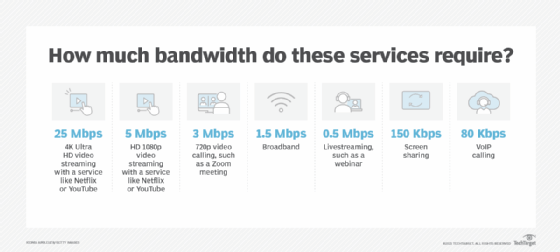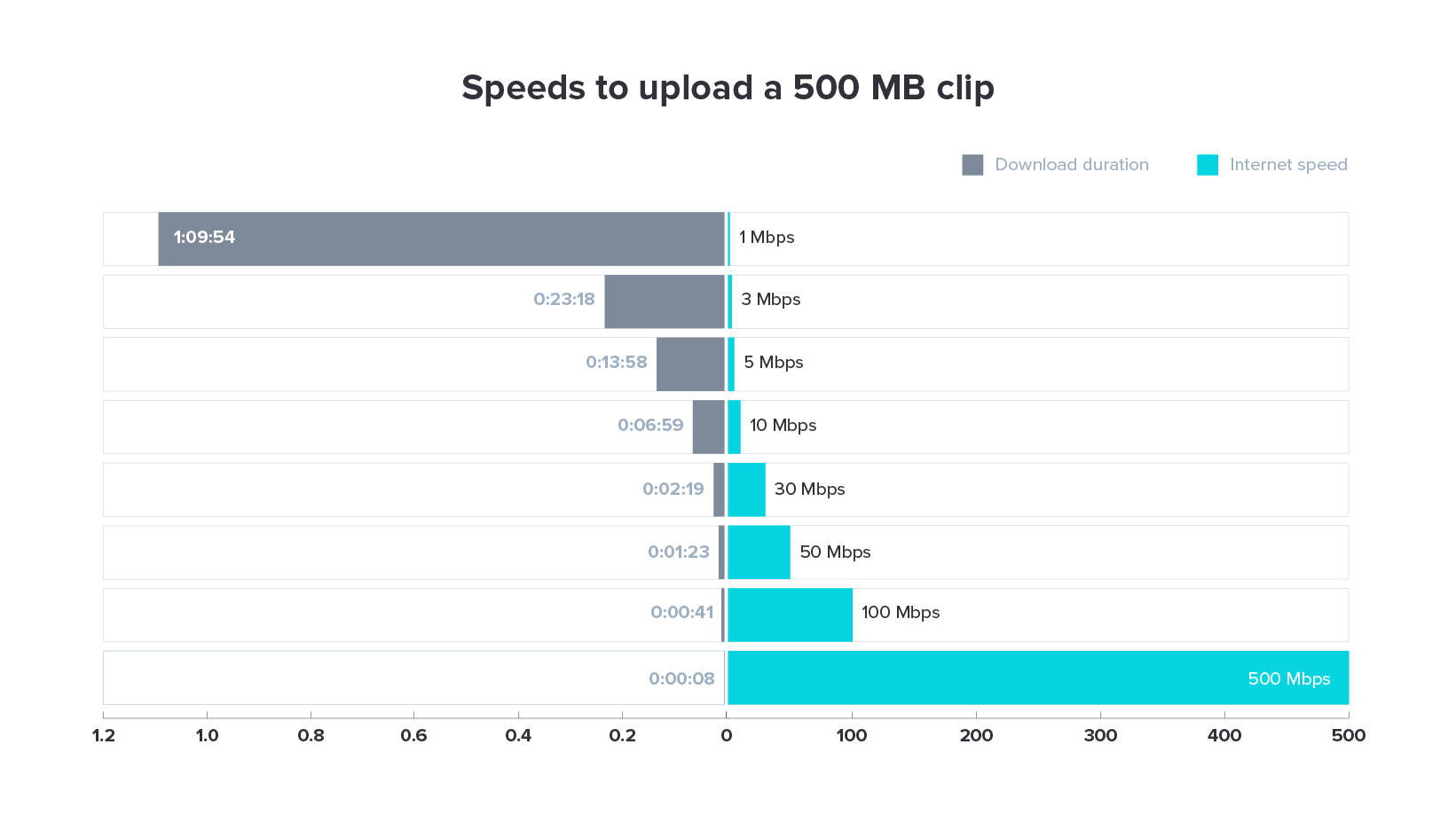The Future of Internet Speeds: Trends in Megabits Per Second
The Future of Internet Speeds: Trends in Megabits Per Second
Blog Article
Just How Megabits Per Second Effect Your Online Activities
The principle of megabits per second (Mbps) plays an essential function in forming our on-line experiences. Higher Mbps can improve performance and reduce disturbances, while poor speeds may promote disappointment and ineffectiveness.
Comprehending Megabits Per Second
When thinking about internet rate, it's important to understand the principle of megabits per second (Mbps), which acts as a common dimension for data transfer prices. This metric quantifies exactly how much data can be transferred over a net connection in one second, supplying a clear understanding of performance capabilities - Megabits Per Second. For context, one megabit is equivalent to one million bits, and Mbps is typically made use of to express transmission capacity for various on the internet activities
A higher Mbps indicates a faster internet link, making it possible for users to execute jobs such as downloading data, browsing web sites, and participating in online video gaming a lot more efficiently. Normal surfing requires around 1-5 Mbps, while streaming high-definition video may demand 5-25 Mbps. Comprehending these requirements is critical for identifying the proper web rate required for details tasks.
Furthermore, the variety of tools attached to a network can influence total efficiency. Numerous individuals streaming, pc gaming, or downloading and install simultaneously can strain available bandwidth, causing slower rates - Megabits Per Second. Examining individual online behaviors and needs is vital in picking a net strategy that aligns with one's requirements, guaranteeing a seamless digital experience
Streaming and Buffering Issues
Streaming high-def web content has ended up being a staple of modern on the internet amusement, yet it is usually come with by irritating buffering issues. These interruptions can substantially detract from the watching experience, bring about discontentment and prospective loss of target market involvement. Buffering happens when the information sent from the streaming service is not received promptly enough to maintain a smooth playback, usually because of insufficient web rate gauged in megabits per second (Mbps)

Moreover, real-time streaming can be affected by network blockage, which happens when several tools share the very same data transfer. As a result, optimizing link rate and guaranteeing adequate Mbps is essential for a seamless streaming experience. As streaming solutions remain to develop, understanding the influence of Mbps on buffering problems continues to be important for consumers seeking nonstop entertainment.
Online Gaming Efficiency
The impact of net speed on on-line activities expands beyond streaming, significantly affecting online pc gaming performance. In affordable gaming, reduced latency and high transmission capacity are critical for a seamless experience. A rapid connection decreases lag, allowing gamers to react quickly to in-game occasions, which can be the difference in between victory and defeat.
Transmission capacity, determined in megabits per second (Mbps), plays an important duty in supporting several tools and gaming systems simultaneously. Inadequate bandwidth can result in went down links or decreased game high quality, adversely influencing gameplay. Online multiplayer games require significant data transfer, particularly during peak video gaming hours when countless gamers are online.
Additionally, the kind of game can also dictate the required web rate. Busy first-person shooters demand greater rates to preserve responsiveness, while turn-based method video games might operate moderately well on reduced speeds. As online gaming remains to develop, with boosting graphical fidelity and more complicated multiplayer atmospheres, the need for higher Mbps will only increase. Subsequently, gamers ought to guarantee they have appropriate web speed to enhance their gaming efficiency and overall experience. Buying a robust internet link is crucial for players wanting to maximize their efficiency and pleasure.
Video Conferencing Top Quality
In today's digital landscape, video clip conferencing high quality is greatly influenced by internet speed, especially in terms of bandwidth and latency. Top notch video clip calls require enough data transfer to transmit sound and video information effortlessly. Normally, a minimum of 1.5 Mbps upload and download speeds is advised for basic interpretation video, while high-def video conferencing usually demands a minimum of 3 Mbps.
Latency, or the hold-up in between sending out and receiving information, additionally plays a this website vital function in the customer experience. Higher latency can lead to echo, lag, and disjointed communications, which can prevent collaboration and engagement during conferences.
Furthermore, numerous individuals in a video conference can strain offered transmission capacity, necessitating also greater rates. Network blockage, frequently triggered by synchronised tasks like streaming or downloading, can better deteriorate video clip top quality. Hence, for companies counting on video conferencing for remote collaboration, understanding the relationship in between megabits per total and second interaction top quality is essential for maintaining efficiency and improving online interactions.
Selecting the Right Web Plan
Selecting a suitable internet strategy is vital for guaranteeing optimal performance in various online tasks, specifically in setups that require high data transfer, such as video conferencing and online video gaming. Megabits Per Second. When thinking about an internet plan, it is necessary to assess both the speed and information allocation to match your certain usage needs
For houses with numerous customers involving in simultaneous activities, a strategy providing higher megabits per second (Mbps) is suggested. Usually, a minimum of 25 Mbps is appropriate for conventional streaming and browsing, while strategies surpassing 100 Mbps are more suitable for even more extensive tasks. In addition, think about the nature of your online tasks; video clip conferencing calls for at the very least 1.5 Mbps submit speed, while on the internet video gaming might need a reduced latency yet consistent link.
It is also vital to analyze your data his comment is here cap. Unlimited data plans can stop Visit Your URL throttling and disturbances, especially if hefty usage is prepared for. Last but not least, research study provider in your area, as schedule and pricing can differ. By attentively choosing a net plan tailored to your requirements, you can improve your online experience, making certain smooth, continuous accessibility to your preferred activities.
Final Thought
In final thought, the relevance of megabits per second (Mbps) in forming on the internet activities can not be overemphasized. An extensive understanding of individual or home Mbps needs is essential for picking an ideal net strategy that adequately supports varied online activities and individual demands.

Generally, a minimum of 25 Mbps is suitable for standard streaming and browsing, while plans surpassing 100 Mbps are more effective for even more intensive tasks. In addition, take into consideration the nature of your online activities; video conferencing calls for at least 1.5 Mbps submit rate, while on the internet video gaming might require a reduced latency but constant connection.
Report this page